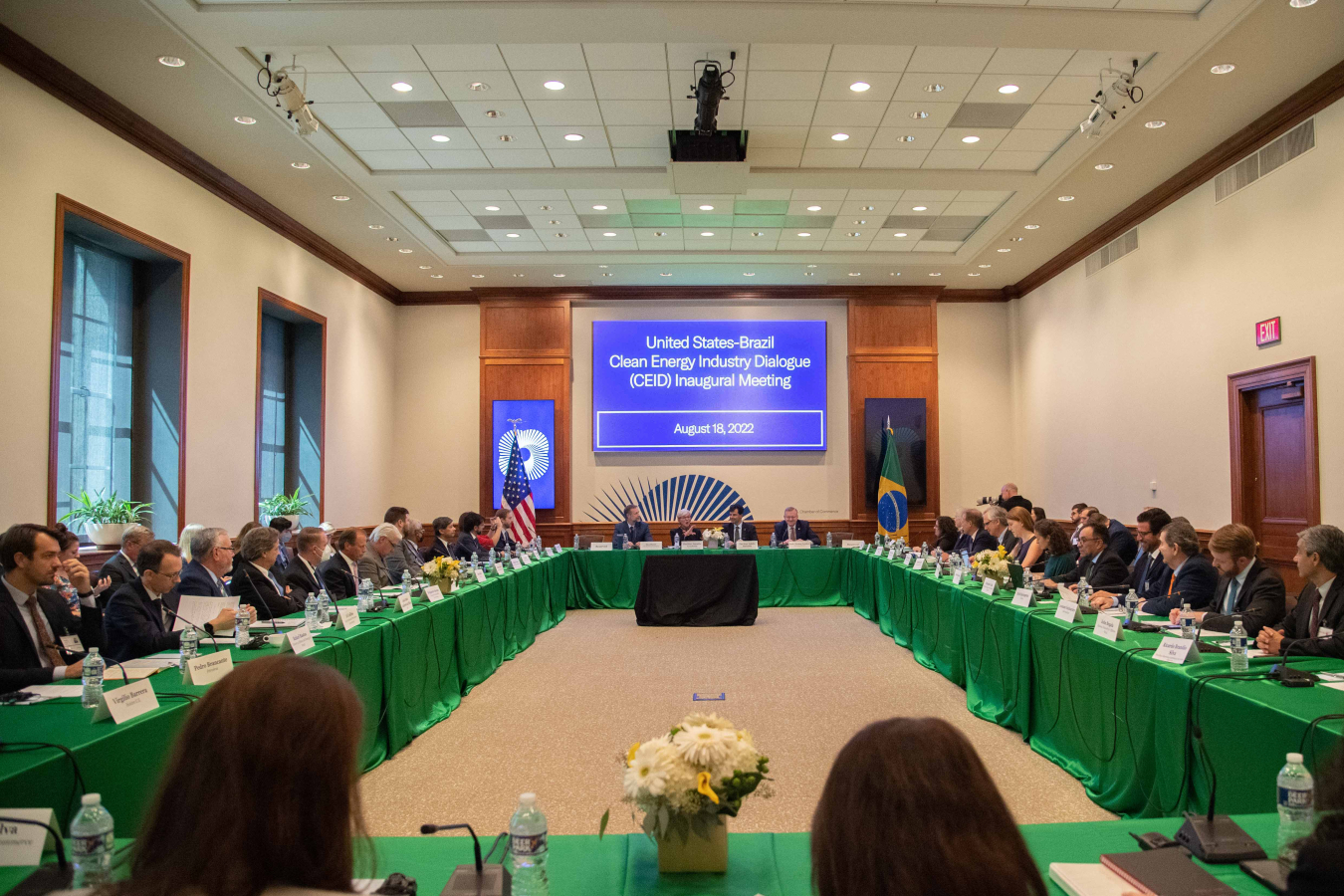The United States of America and the Federative Republic of Brazil reaffirmed today their commitment to joint energy cooperation at the second U.S.-Brazil Energy Forum (USBEF) Ministerial in Washington, D.C.
Office of International Affairs
August 22, 2022The United States of America and the Federative Republic of Brazil reaffirmed today their commitment to joint energy cooperation at the second U.S.-Brazil Energy Forum (USBEF) Ministerial in Washington, D.C. Secretary of Energy Jennifer Granholm hosted the meeting with Brazil’s Minister of Mines and Energy Adolfo Sachsida. The USBEF was established as a mechanism to collaborate on technical, regulatory, and policy issues of mutual interest, as well as address critical barriers to bilateral energy trade and investment.
Secretary Granholm and Minister Sachsida endorsed a bilateral cooperation plan for technical, regulatory, and policy cooperation in three areas: Carbon and Methane Management, Civil Nuclear Power, and Renewables, Energy Efficiency, and Grid Modernization:
- The two governments agreed to exchange expertise in carbon and methane management, and carbon sequestration and storage.
- There was also agreement to continue and expand cooperation on civil nuclear power and launch new efforts on civil nuclear regulation and new nuclear power generation.
- The Ministers emphasized their interest in increasing the cooperation on renewable energy and energy efficiency, particularly on strategic sectors such as clean hydrogen, offshore wind, sustainable fuels, grid modernization and storage, and industrial energy efficiency.
After the Ministerial meeting, Secretary Granholm and Minister Sachsida inaugurated the U.S.-Brazil Clean Energy Industry Dialogue, or CEID, a new bilateral forum to promote clean energy cooperation and led by industry and private sector from the U.S. and Brazil. The inaugural meeting hosted by the Brazil-U.S. Business Council at the U.S. Chamber of Commerce in Washington D.C. established five bilateral public-private working groups focusing on: clean hydrogen, offshore wind, grid modernization and storage, sustainable fuels, and carbon and methane management.
The USBEF and the CEID represent a whole-of-government, public-private approach that is committed to addressing the energy security challenges facing the United States and Brazil, and our partners around the world.


